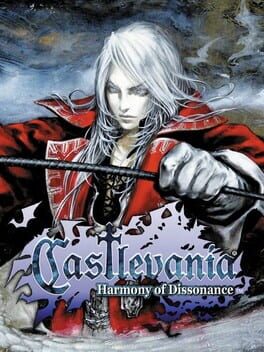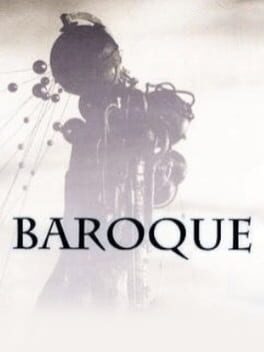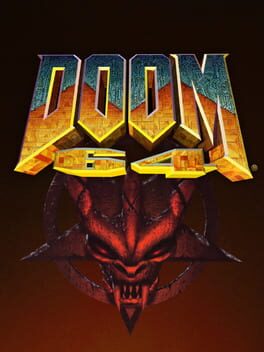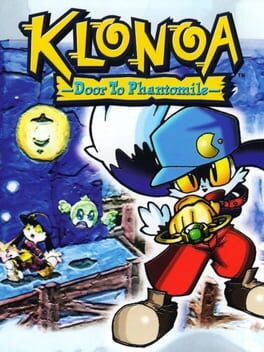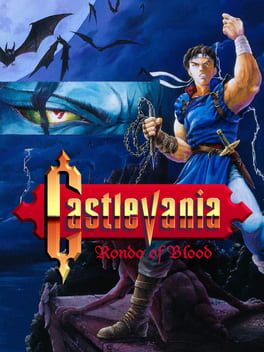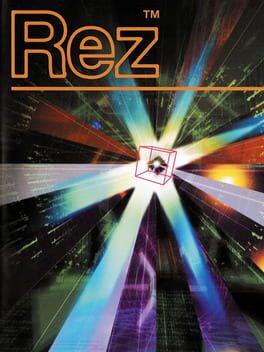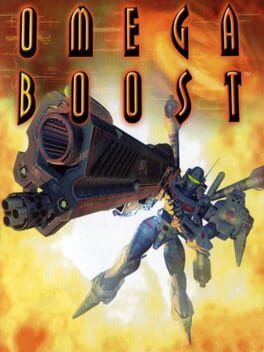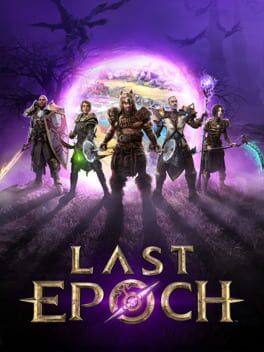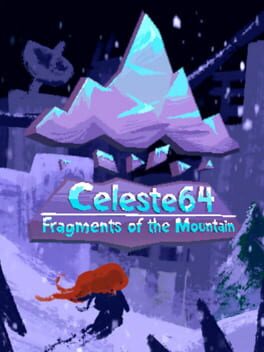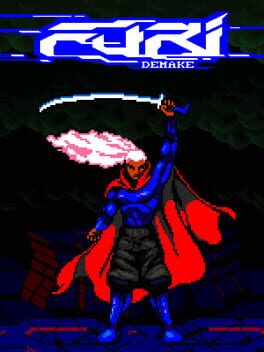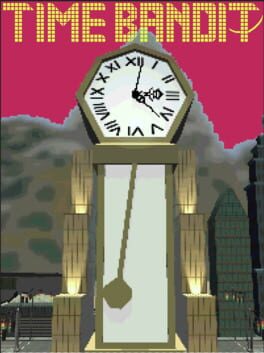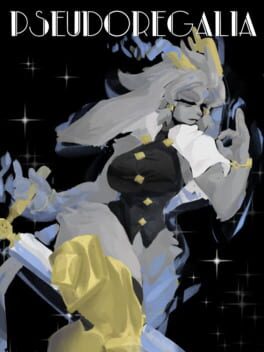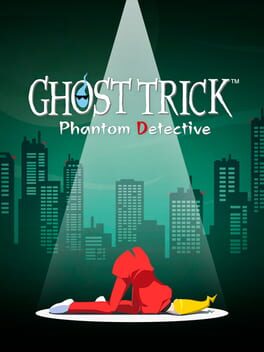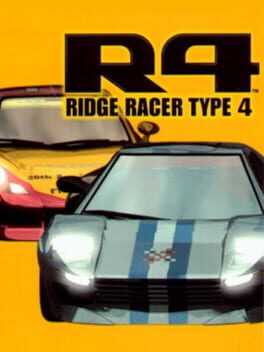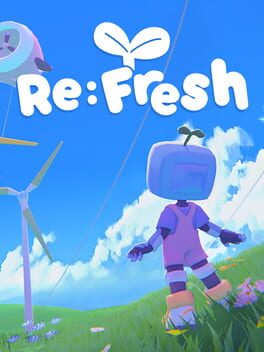Silverhand
BACKER
Harmony of Dissonance feels like the first true follow-up to Symphony of the Night. While Circle of the Moon came before, that felt like a faltering half-step into this new direction for the series, where Harmony expands on ideas from Symphony. While it falls somewhat short of reaching the heights of its inspiration, there are some interesting ideas on display and a lot of fun to be had.
The most notable strong point here is the movement, while I don't feel that it ever is as fluid as Symphony's once you've mastered it, Harmony codifies the backdash cancelling exploit and simply gives you a bidirectional dash from the start of the game which can easily be cancelled into itself or out of attacks. This makes movement on the ground feel great from the very beginning of the game, and oh boy you're going to need it with the lengthy exploration and backtracking. Air movement is a bit more underwhelming, the jump just feels a bit off, and things like landing doubling the lag of your attacks instead of cancelling it like in Symphony is odd feeling. This improves with later upgrades like the double jump, but does make things feel a bit stiff at times and encourage you to stay grounded whenever possible, which is not entirely without merit even if it's a bit awkward. Despite keeping the RPG gear system, your weapons are limited to various forms of a whip this time around. It feels decent to use, outside of the menuing required to change whip types which I never bothered much with outside of when I was required to. The gear menus in general are kind of shit, and even with the small screen size I feel they could have done a lot better. There's a large focus on subweapons here, with different spellbooks that modify each subweapon into a different spell. A lot of these are incredibly strong compared to the base subweapons, and use a recharging mana system rather than hearts, which makes it a bit confusing why hearts are even in the game and are a super common drop. Enemies are your standard fare for these games, and bosses are solid if nothing really exceptional.
Exploration is unfortunately much more of a mixed bag. There are plenty of rooms and enemy encounters that feel nice in a vacuum, and a good amount of variety, but both the route for main progression and the general layout of the castle have some severe issues. There are many long corridors that pad the length of getting anywhere, and not a lot of alternate paths you can take. With the amount that this game asks you to go just aimlessly search for some means of progression this gets old pretty fast. Coupled with very inconsistent placement of save points and a map that sorely needs more types of indicators for things, there were a lot of points where exploration was straight up unfun. This game's big gimmick for the map to follow up the inverted castle is a mid-game reveal that there are actually two castles overlaid on top of each other, and that the teleporters you've taken several of up to that point were actually swapping you between the two already. This is a really neat idea, but the execution leaves a lot to be desired. I liked the early exploration after this opened up quite a bit, but after a while it just becomes added length to any backtracking to get to one of the sparsely placed teleporter rooms, then work your way back to a single map square where you can't remember if it's something you now have the abilities to get past or if it's still blocked. These issues with the map hold the game back a lot in general, exploration is actually fun at points but it's so inconsistent and has some very low lows.
Overall the core gameplay was still fun enough that I had a good time with this. The visuals and music are solid for the GBA even if both were surpassed in short order by Aria of Sorrow. With a better laid out map, better use of the gear system, and a bit less focus on the truly terrible writing this could be pretty great. Which, yeah I'm just describing Symphony (and later Aria) there, but not everything can be that and I'm glad to try something new that still scratches the same itch. For a smaller handheld game it does bring a lot of that same fun and has some neat ideas going for it, it's a mixed bag but not one that I regret playing.
The most notable strong point here is the movement, while I don't feel that it ever is as fluid as Symphony's once you've mastered it, Harmony codifies the backdash cancelling exploit and simply gives you a bidirectional dash from the start of the game which can easily be cancelled into itself or out of attacks. This makes movement on the ground feel great from the very beginning of the game, and oh boy you're going to need it with the lengthy exploration and backtracking. Air movement is a bit more underwhelming, the jump just feels a bit off, and things like landing doubling the lag of your attacks instead of cancelling it like in Symphony is odd feeling. This improves with later upgrades like the double jump, but does make things feel a bit stiff at times and encourage you to stay grounded whenever possible, which is not entirely without merit even if it's a bit awkward. Despite keeping the RPG gear system, your weapons are limited to various forms of a whip this time around. It feels decent to use, outside of the menuing required to change whip types which I never bothered much with outside of when I was required to. The gear menus in general are kind of shit, and even with the small screen size I feel they could have done a lot better. There's a large focus on subweapons here, with different spellbooks that modify each subweapon into a different spell. A lot of these are incredibly strong compared to the base subweapons, and use a recharging mana system rather than hearts, which makes it a bit confusing why hearts are even in the game and are a super common drop. Enemies are your standard fare for these games, and bosses are solid if nothing really exceptional.
Exploration is unfortunately much more of a mixed bag. There are plenty of rooms and enemy encounters that feel nice in a vacuum, and a good amount of variety, but both the route for main progression and the general layout of the castle have some severe issues. There are many long corridors that pad the length of getting anywhere, and not a lot of alternate paths you can take. With the amount that this game asks you to go just aimlessly search for some means of progression this gets old pretty fast. Coupled with very inconsistent placement of save points and a map that sorely needs more types of indicators for things, there were a lot of points where exploration was straight up unfun. This game's big gimmick for the map to follow up the inverted castle is a mid-game reveal that there are actually two castles overlaid on top of each other, and that the teleporters you've taken several of up to that point were actually swapping you between the two already. This is a really neat idea, but the execution leaves a lot to be desired. I liked the early exploration after this opened up quite a bit, but after a while it just becomes added length to any backtracking to get to one of the sparsely placed teleporter rooms, then work your way back to a single map square where you can't remember if it's something you now have the abilities to get past or if it's still blocked. These issues with the map hold the game back a lot in general, exploration is actually fun at points but it's so inconsistent and has some very low lows.
Overall the core gameplay was still fun enough that I had a good time with this. The visuals and music are solid for the GBA even if both were surpassed in short order by Aria of Sorrow. With a better laid out map, better use of the gear system, and a bit less focus on the truly terrible writing this could be pretty great. Which, yeah I'm just describing Symphony (and later Aria) there, but not everything can be that and I'm glad to try something new that still scratches the same itch. For a smaller handheld game it does bring a lot of that same fun and has some neat ideas going for it, it's a mixed bag but not one that I regret playing.
1998
Really cool, a wholly unique style, and shockingly modern in most of its design. If the movement didn't feel like it was designed for a saturn controller I'd kind of have a hard time believing this really came out when it did. I beat this almost certainly faster than intended, but had a really good time and plan to go back to see more.
2020
Finally got around to playing through this in full. It's a really weird game to even exist, there were a lot of basic ports of Doom to various consoles, but it's pretty wild how fully new this is. Despite using a lot of the same weapons and enemies, they're all remade from scratch and feel a bit different, alongside an updated engine and a completely new set of levels, this feels more like an alternate reality's version of Doom. I think the feel of the movement and weapons isn't quite as good as the original, but it's certainly not bad (at least playing on pc, can't imagine it's great on an N64 controller). The level design is mostly pretty good, there's a couple I disliked but overall I'd probably put it over Doom 2's levels but below 1's. The updated lighting and different enemies definitely gives it its own style, which I don't think I'd say I like more but it's a nice change of pace. Doesn't really hold a candle to modern WADs but it would definitely be unfair to expect it to, and it's definitely worth playing overall if you're a fan of the series.
A fun 2.5D platformer with a lot of cool ideas and a unique aesthetic, but it suffers a bit in some areas compared to its contemporaries. Klonoa's moveset is really good for how simple it is, and the game makes a lot of use of all aspects of it. The controls feel good, and everything related to the 3D aspects of it works surprisingly well. The levels are a bit too easy for a bit too much of the game I think, but they do definitely ramp up really nicely towards the end. Boss fights are definitely the highlight, they're all very unique and fun. Level design is enjoyable overall with levels having pretty distinct identities, my main complaint with it is that if you're looking for collectibles it's often hard to tell what the main path is and what's a quick side path you should do now. This wouldn't be a huge issue if not for my biggest problem with the game, that it has no level select (until after completing the game, which feels even worse to me because they went to the effort of making one but just don't let you use it). The collectibles in this would be a great way to add challenge to what is otherwise mostly a very easy platformer until the last few stages, but it really killed my interest in going out of my way for them that if you miss any you're just screwed out of getting them until after completing the game. I really don't get that decision at all. It also has a relatively large emphasis on story, which I didn't really like. It gets a bit interesting at the very end, but mostly didn't feel like it was worth having dialogue when similar games like Donkey Kong Country and Yoshi's Island get by perfectly fine without. To end on a more positive note, the style and vibes of this are really pleasant and the positives do outweigh the negatives here overall, I had a good time with it.
One of the better retro action platformers I've played. Controls are really tight, and enemy and level design is very solid. Boss fights are pretty difficult, which I don't really mind in a vacuum, but the continue system making you restart the level got really annoying so I'd often end up savestating before the boss after getting through the level a couple times. I like Richter's moveset overall but I wish his mobility was a bit better. The backflip is cool but feels a little less useful than it should be, and I wish he had the slide he has in SOTN. I think Maria might solve this issue but I missed the unlock for her, will have to replay as her at some point. Dracula was a bit anticlimactic as the final boss, much easier than some of the earlier fights. Overall a very good time though, the only pre-SOTN Castlevania I've been able to get into enough to finish.
2001
What an amazing experience. Everything about the presentation and feel is just so cool. Gameplay is mechanically simple but very satisfying, and the variety of encounters is great and paced out perfectly. Everything about it is so elegant that it feels hard to talk about much other than just saying you should play it yourself if you haven't. The main reason I even wanted to write anything is to talk about my experience with trying it previously. I played the first level in the remake a couple of years back (also tried it in VR, which looked cool but did not play very well), and I thought it was neat but it didn't compel me to keep playing. Trying the original Dreamcast version it instantly clicked, it really feels like the way the game is meant to look and feel. Maybe not everyone's experience but I don't see anything about this that needs updating anyways. Anyways, absolute banger of a game, easiest 5 stars in a while.
1999
This game is just really fucking cool. Probably my favorite looking game on psx, and it's got some really cool ideas for making a 3D shmup with a unique control scheme. Some bullshit moments with one hit kills and damage reflection, and if I didn't use save states to bypass the continue system it would have taken me much longer to figure out some of the bosses, but most of them were pretty fun once you understand the mechanics. Could see this being something that gets better with repeat playthroughs, but for the first time it was still very good.
2024
Across the various ARPGs I've played I've put at least several thousand hours into the genre, and this is easily my favorite. Following it throughout Early Access you can really tell that the developers are genuine fans of the type of game they're making, and regularly question assumptions and standard ways of doing things to try and create something better rather than just another game like the many we already have. They've consistently listened to community feedback and come up with solutions to tough problems that are far more clever than what I could imagine. It oozes quality of life in every regard. The gameplay is very fun, there's a ton of build variety here without being overly complex, and the game is very generous about letting you feel powerful. Leveling new characters is very smooth and actually enjoyable, it doesn't feel like the game punishes you for branching out and experimenting, and the crafting system might be the highlight of the whole game for how simple and approachable it makes finding and creating items to fit your build. I already put around 200 hours into EA despite holding myself back a lot of the time to wait to play until a new patch, or recently waiting for 1.0, but I can comfortably say that the full release does not disappoint and I plan to continue playing this for years to come.
This was a very pleasant surprise. I absolutely love the concept, aesthetic, and music. I had a good time overall, this is much more enjoyable than the PICO-8 Celeste games in my opinion, but I do feel like it has some shortcomings in controls and polish that I wanted to talk about. These aren't a huge deal for a very short game made in a week, but I just think it's interesting.
There's some clear issues with the controls, particularly relating to the camera, that become much more obvious doing some of the more difficult B-Sides. Edges of platforms also feel particularly slippery where I feel like other games would be more generous, and Madeline is all too eager to perform a ledge climb when moving along a wall even when there are spikes on top that will instantly kill you. Many of the jumps in this game require a lot of active camera management to see where you're going, and since you also want your thumb on the face buttons to be able to dash mid-air you're constantly moving your grip back and forth. There are no control options whatsoever, and in most games I'd settle for being able to put dash on a shoulder button. I generally think taking common actions off of the face buttons in games that use both analog sticks is a good idea and fully solves a lot of issues like this, but here it feels like it would still be a band-aid solution.
The problems with the camera go deeper. For one thing, I think putting the ability to zoom in and out on the right stick's Y-axis was a mistake, you're not going to be getting perfectly horizontal inputs every time you want to turn the camera, so over the course of a series of jumps with quick camera turns you can find the camera at a very different angle than you intended. This is especially annoying since the camera doesn't reset when you respawn and you almost always have to adjust it before each attempt at a section. It's also often very hard to judge distance, I found myself under or overshooting small platforms a lot of the time. I've played a lot of 3D platformers and this is not an issue I usually have, and I had to think for a bit about what the actual cause is, which I think comes down to a couple of things. I think the developers realized this problem as well, since they included a very exaggerated guide that's enabled by default, rather than the traditional shadow below your character there's also a dotted line that extends from you to the ground. I don't think this solves the issue however.
The camera does a lot less automated movement than the average 3D platformer. In Super Mario 64 the developers only had a single analog stick to work with, and were also designing for players new to 3D games entirely, so they made the camera movement largely automatic, keeping it at a good angle behind Mario as he moved, with buttons left only for larger adjustments. Even with the move to dual-analog controllers, most 3D platformers since have largely copied this behavior. Celeste 64 seems to expect the player to do a lot more of this camerawork on their own, which is a decision I can understand sounding good on paper but doesn't really work in this genre. An interesting side-effect of this is that I think a lot of how distance is perceived is through seeing the edges of objects or textures move as the camera moves, and when the camera is at a locked angle even though the player is moving this makes the scene appear flat.
While fixing that problem would go a long way, I think there's also just an inherent issue with the amount of air control expected from Celeste's mechanics when applied to a 3D space. Most 3D platformers give you a lot of control in how you start your jump, but once you're in the air you're mostly just expected to make minor adjustments to ensure you land in the right spot. Completely changing your trajectory in the air and having to use that precisely is a lot more challenging, and even as someone who has played many difficult platformers I think that type of challenge is more awkward than it is fun. It's still probably possible to make a better-controlling game around this idea, with a better camera and level design that keeps this in mind and tries to avoid the awkward situations, but I think this game shows how difficult that would be to make properly.
While I mainly focused on negatives so far, I did have a very nice time with this overall. The play area feels packed with secrets and I was really impressed with the number of B-Sides. The ideas taken from Mario and the way they're implemented is great, I love the inclusion of 64's side-jump, and the short B-Side levels as secrets fit in great with the more open exploration. Like I mentioned at the start the game looks and sounds great, especially so for something put together so quickly. For something that took me under 3 hours to 100% the downsides are easy to overlook, and I had a really fun time with it.
There's some clear issues with the controls, particularly relating to the camera, that become much more obvious doing some of the more difficult B-Sides. Edges of platforms also feel particularly slippery where I feel like other games would be more generous, and Madeline is all too eager to perform a ledge climb when moving along a wall even when there are spikes on top that will instantly kill you. Many of the jumps in this game require a lot of active camera management to see where you're going, and since you also want your thumb on the face buttons to be able to dash mid-air you're constantly moving your grip back and forth. There are no control options whatsoever, and in most games I'd settle for being able to put dash on a shoulder button. I generally think taking common actions off of the face buttons in games that use both analog sticks is a good idea and fully solves a lot of issues like this, but here it feels like it would still be a band-aid solution.
The problems with the camera go deeper. For one thing, I think putting the ability to zoom in and out on the right stick's Y-axis was a mistake, you're not going to be getting perfectly horizontal inputs every time you want to turn the camera, so over the course of a series of jumps with quick camera turns you can find the camera at a very different angle than you intended. This is especially annoying since the camera doesn't reset when you respawn and you almost always have to adjust it before each attempt at a section. It's also often very hard to judge distance, I found myself under or overshooting small platforms a lot of the time. I've played a lot of 3D platformers and this is not an issue I usually have, and I had to think for a bit about what the actual cause is, which I think comes down to a couple of things. I think the developers realized this problem as well, since they included a very exaggerated guide that's enabled by default, rather than the traditional shadow below your character there's also a dotted line that extends from you to the ground. I don't think this solves the issue however.
The camera does a lot less automated movement than the average 3D platformer. In Super Mario 64 the developers only had a single analog stick to work with, and were also designing for players new to 3D games entirely, so they made the camera movement largely automatic, keeping it at a good angle behind Mario as he moved, with buttons left only for larger adjustments. Even with the move to dual-analog controllers, most 3D platformers since have largely copied this behavior. Celeste 64 seems to expect the player to do a lot more of this camerawork on their own, which is a decision I can understand sounding good on paper but doesn't really work in this genre. An interesting side-effect of this is that I think a lot of how distance is perceived is through seeing the edges of objects or textures move as the camera moves, and when the camera is at a locked angle even though the player is moving this makes the scene appear flat.
While fixing that problem would go a long way, I think there's also just an inherent issue with the amount of air control expected from Celeste's mechanics when applied to a 3D space. Most 3D platformers give you a lot of control in how you start your jump, but once you're in the air you're mostly just expected to make minor adjustments to ensure you land in the right spot. Completely changing your trajectory in the air and having to use that precisely is a lot more challenging, and even as someone who has played many difficult platformers I think that type of challenge is more awkward than it is fun. It's still probably possible to make a better-controlling game around this idea, with a better camera and level design that keeps this in mind and tries to avoid the awkward situations, but I think this game shows how difficult that would be to make properly.
While I mainly focused on negatives so far, I did have a very nice time with this overall. The play area feels packed with secrets and I was really impressed with the number of B-Sides. The ideas taken from Mario and the way they're implemented is great, I love the inclusion of 64's side-jump, and the short B-Side levels as secrets fit in great with the more open exploration. Like I mentioned at the start the game looks and sounds great, especially so for something put together so quickly. For something that took me under 3 hours to 100% the downsides are easy to overlook, and I had a really fun time with it.
Fun for what it is, and hard to complain about a surprise free release like this, but it does start to show its problems on Furier mode. Some bullet patterns are very annoying to dodge because of the invisible walls, the contextual shoot/melee button really does not work well, and parry being back+attack rather than a dedicated input is annoying. Lot of things are just unclear generally, unsurprisingly not as good as the full game. Worth a quick playthrough on the base difficulty then put it down imo.
[ Day 1 - September 7th, 2023 ]
Time Bandit stands out as one of the more unique experiences I've had with a game. The central mechanic of the game is interactions taking real world time to complete. You work in a warehouse in a desolate, company-owned town, and are tasked with moving boxes around to collect time crystals. This is represented by sokoban-type puzzles. The equipment you need to use to complete your work will take at least 30 minutes to complete an action, sometimes longer, but you can leave it to work even with the game closed. This might sound like a gimmick, and it did seem that way to me at first, but the game does a great job of fully exploring this concept.
Early on, there was an event that started to make me think this game was something special. You meet a character who is part of a resistance against the company you work for, and he wants to schedule a meeting with you tomorrow. You have to pick a real world time, and show up in a specific location at that time. So fucking cool. As the game goes on there's a lot of really neat interactions with time. You can get put in jail and have to wait out the sentence before you can continue playing. You can get injured and have to go to the hospital and wait out your stay there. Your job shift changes to random times each day. It really feels like the idea was fully explored.
[ Day 2 - September 8th, 2023 ]
As far as the moment-to-moment gameplay, I mentioned the sokoban puzzles previously. These aren't anything especially complex, but they do require a good bit of thought as you have to plan out your moves in advance. These also introduce other elements with different types of equipment and obstacles. I never found the puzzles too difficult, but they were interesting enough to be satisfying. There are other elements to the game as well, and it's quite an interesting mix of genres. There's a management element, you earn money through your work but you're required to provide your own equipment beyond what you get at the start. You can buy more stuff at the town's general store, but you also have to balance this with saving money for trips to the hospital and buying gas to power the equipment you already have. Early on you also learn of a secret entrance to the warehouse and can sneak in while you're not on the clock, introducing a stealth element. You can get some extra work done, or more importantly steal from the company, but if you get caught you'll be sent to jail for trespassing.
That leads into my main complaint I have with the game, which is the late game tedium of the stealth sections. Unless you keep track of your ever-changing schedule and only play the game during those times, then more often than not you'll be playing when you're off-shift. This requires you to sneak into work, which is exciting enough at first, but by the end of the game I got very tired of. You can follow basically the same path every time, and there's only a handful of layouts of the cameras and patrolling robots that can catch you, which you'll quickly learn to recognize. This is compounded by the fact that the later game content is further into the area, which requires you to walk and crawl through an even longer path over and over. The dull repetition of work ties into the story and themes of the game, so I can almost forgive this as intentional, but I still feel there could have been some more variety to what you actually have to do with the stealth and still accomplish this goal.
[ Day 3 - September 9th, 2023 ]
I haven't really talked much about the story up to this point, and while you've probably realized that the company in the game sounds pretty evil, you might expect it to not address that on a deeper level. Time Bandit gets into some very political themes, and while it's a bit heavy-handed in some of the ways it talks about them, it addresses stuff I haven't seen any other games really talk about sincerely and tries to educate the player on real political ideas. The story is told through interacting with just a handful of characters. There's your boss at work, a coworker, a member of the resistance movement, and the local store owner. While you do sometimes talk to them in person, most conversations are done over radio. Sometimes they'll reach out to you with something to talk about, but you can also contact any of them at any point in the game and they'll have different things to say depending on the context of what you're doing. I won't spoil more of the details than I already have, but it does stand out as very different among the medium of games and uses it pretty effectively.
One thing I wanted to address that didn't fit neatly elsewhere in the review is the time commitment of this game. It might sound like a lot, but I really don't think this is too much for anyone to handle. It took me a bit over a month to complete the game, but in that time Steam says I only spent a bit under 8 hours in game. Most of my sessions were just logging in for the day, playing 5-10 minutes, and closing it. You could definitely complete it faster in real time by managing the timers more efficiently, but I enjoyed just starting it up whenever I felt like it, rarely more than once or twice a day, with occasional skipped days. Through the various limitations, this also seems to be the way the game wants you to approach it. A very cool side effect of this is that at least for the first while, I felt like I was spending more time with the game while I wasn't playing it than while I was. It gives you a lot to think about between play sessions and planning ahead for what you're going to do next time is a really cool experience. I was admittedly not feeling this way so much towards the end and was pretty ready for it to be over, but it's such a unique overall package and I had such a good time with it for the most part that I'd still easily recommend this to anyone.
Time Bandit stands out as one of the more unique experiences I've had with a game. The central mechanic of the game is interactions taking real world time to complete. You work in a warehouse in a desolate, company-owned town, and are tasked with moving boxes around to collect time crystals. This is represented by sokoban-type puzzles. The equipment you need to use to complete your work will take at least 30 minutes to complete an action, sometimes longer, but you can leave it to work even with the game closed. This might sound like a gimmick, and it did seem that way to me at first, but the game does a great job of fully exploring this concept.
Early on, there was an event that started to make me think this game was something special. You meet a character who is part of a resistance against the company you work for, and he wants to schedule a meeting with you tomorrow. You have to pick a real world time, and show up in a specific location at that time. So fucking cool. As the game goes on there's a lot of really neat interactions with time. You can get put in jail and have to wait out the sentence before you can continue playing. You can get injured and have to go to the hospital and wait out your stay there. Your job shift changes to random times each day. It really feels like the idea was fully explored.
[ Day 2 - September 8th, 2023 ]
As far as the moment-to-moment gameplay, I mentioned the sokoban puzzles previously. These aren't anything especially complex, but they do require a good bit of thought as you have to plan out your moves in advance. These also introduce other elements with different types of equipment and obstacles. I never found the puzzles too difficult, but they were interesting enough to be satisfying. There are other elements to the game as well, and it's quite an interesting mix of genres. There's a management element, you earn money through your work but you're required to provide your own equipment beyond what you get at the start. You can buy more stuff at the town's general store, but you also have to balance this with saving money for trips to the hospital and buying gas to power the equipment you already have. Early on you also learn of a secret entrance to the warehouse and can sneak in while you're not on the clock, introducing a stealth element. You can get some extra work done, or more importantly steal from the company, but if you get caught you'll be sent to jail for trespassing.
That leads into my main complaint I have with the game, which is the late game tedium of the stealth sections. Unless you keep track of your ever-changing schedule and only play the game during those times, then more often than not you'll be playing when you're off-shift. This requires you to sneak into work, which is exciting enough at first, but by the end of the game I got very tired of. You can follow basically the same path every time, and there's only a handful of layouts of the cameras and patrolling robots that can catch you, which you'll quickly learn to recognize. This is compounded by the fact that the later game content is further into the area, which requires you to walk and crawl through an even longer path over and over. The dull repetition of work ties into the story and themes of the game, so I can almost forgive this as intentional, but I still feel there could have been some more variety to what you actually have to do with the stealth and still accomplish this goal.
[ Day 3 - September 9th, 2023 ]
I haven't really talked much about the story up to this point, and while you've probably realized that the company in the game sounds pretty evil, you might expect it to not address that on a deeper level. Time Bandit gets into some very political themes, and while it's a bit heavy-handed in some of the ways it talks about them, it addresses stuff I haven't seen any other games really talk about sincerely and tries to educate the player on real political ideas. The story is told through interacting with just a handful of characters. There's your boss at work, a coworker, a member of the resistance movement, and the local store owner. While you do sometimes talk to them in person, most conversations are done over radio. Sometimes they'll reach out to you with something to talk about, but you can also contact any of them at any point in the game and they'll have different things to say depending on the context of what you're doing. I won't spoil more of the details than I already have, but it does stand out as very different among the medium of games and uses it pretty effectively.
One thing I wanted to address that didn't fit neatly elsewhere in the review is the time commitment of this game. It might sound like a lot, but I really don't think this is too much for anyone to handle. It took me a bit over a month to complete the game, but in that time Steam says I only spent a bit under 8 hours in game. Most of my sessions were just logging in for the day, playing 5-10 minutes, and closing it. You could definitely complete it faster in real time by managing the timers more efficiently, but I enjoyed just starting it up whenever I felt like it, rarely more than once or twice a day, with occasional skipped days. Through the various limitations, this also seems to be the way the game wants you to approach it. A very cool side effect of this is that at least for the first while, I felt like I was spending more time with the game while I wasn't playing it than while I was. It gives you a lot to think about between play sessions and planning ahead for what you're going to do next time is a really cool experience. I was admittedly not feeling this way so much towards the end and was pretty ready for it to be over, but it's such a unique overall package and I had such a good time with it for the most part that I'd still easily recommend this to anyone.
2023
Pseudoregalia is one of the best executed 3D metroidvanias I've seen. It's a game almost entirely focused on movement, and it really nails that. Your abilities are fun and interesting, and many of them aren't the generic upgrades you'd expect from many games in the genre. You can find them very out of order and it feels like the game almost encourages sequence breaking with the amount of opportunities it gives for that. The combat for the most part is just there, it's not great but it's not in the way to the point of being annoying either, with the exception being the final boss fight which I found surprisingly fun. The vibes of this are great, you're exploring a huge castle with very N64-inspired visuals, and it gets those right in a way that feels very authentic and nostalgic as someone who grew up with that system. The music is also really good and adds a lot to the tone of the game.
My biggest complaint that while the castle has a variety of areas, navigating between them can be a little confusing. The game doesn't have any sort of map, and I mostly respect that decision. I feel like if it had one I probably would have been over-reliant on checking it constantly, and the challenge of mapping everything out in my head in a complex 3D space was pretty fun. That's a pretty fine line to walk though of balancing that complexity without frustrating the player, and where it failed at that was near the end of the game when I had to backtrack to specific areas. Within a single area I was usually fine with navigating off of memory, and didn't get stuck often at all, but in the later parts of the game I would know a specific location I needed to get to, and remembering where the zone transitions were and figuring out how the areas all connected together was more frustrating than fun.
Overall it's a very neat game that's good at what it does, and it's very short and underpriced for what it is, so it's an easy recommendation. I could see myself replaying it just to see how doing things in a different order went, or trying to speedrun it as it seems like a really good game for that.
My biggest complaint that while the castle has a variety of areas, navigating between them can be a little confusing. The game doesn't have any sort of map, and I mostly respect that decision. I feel like if it had one I probably would have been over-reliant on checking it constantly, and the challenge of mapping everything out in my head in a complex 3D space was pretty fun. That's a pretty fine line to walk though of balancing that complexity without frustrating the player, and where it failed at that was near the end of the game when I had to backtrack to specific areas. Within a single area I was usually fine with navigating off of memory, and didn't get stuck often at all, but in the later parts of the game I would know a specific location I needed to get to, and remembering where the zone transitions were and figuring out how the areas all connected together was more frustrating than fun.
Overall it's a very neat game that's good at what it does, and it's very short and underpriced for what it is, so it's an easy recommendation. I could see myself replaying it just to see how doing things in a different order went, or trying to speedrun it as it seems like a really good game for that.
Like many of my favorite games, I knew from very early on that Ghost Trick was something special. I put off playing this or even really looking into what it was for years of hearing that it was great just through a misunderstanding of what it actually is. It's actually a very unique game, but if you were to try and describe it to someone unfamiliar, the closest fit is probably a mix of a visual novel and a point-and-click adventure game, two things I am very much not fond of. The recent remastered release caught my attention, and I'm very glad it did. I've tried to avoid any spoilers in this review, but really if the game already has your attention and you haven't tried it, let this be a recommendation to just stop reading and play it. I was very skeptical that it could live up to its reputation, and throughout the game I was still half-expecting the story or gameplay to fall apart by the end, as good as they were. I can say now that it definitely doesn't do that, and it's a game I think everyone should play.
The game's charming presentation is one of the first things you'll notice and goes a long way towards making a strong first impression. It feels high quality in so many ways, and that extra effort really pays off. I've seen similarly structured games with a lot of dialogue like this where characterization is done entirely through text and character portraits (which there are often a real lack of, with characters only having a couple of faces or emotions). There's still a lot of that here, and it could probably get by with the great dialogue writing and wide range of expressive character portraits, but the animations and presentation of scenes outside of that visual novel format really add a lot. Even if they're smoother in the remake, I'm shocked these animations came from a DS title. I think this is a big part of what helps the game go between serious subjects and comedy effortlessly. Comedy is very hard to do well in games, and I laughed a lot while playing this. More often it came from visual jokes with the character animations than from dialogue. This doesn't fall into the trap of detracting from serious subjects in the story though, and both aspects feel respectful of each other.
Another big part of the presentation is the soundtrack, and it's fantastic. One of my favorites I've heard in quite a while, it has a very unique sound to it and has enough variety in tracks that none of them feel old even with some reuse. The remake has a new arranged version of the soundtrack as well as the option to use the original, which I'm really glad they included. I played mostly with the original version, and have listened to the arranged version afterwards. I think I have a slight preference for the original, but both are great, it's hard to pick a clear winner so it's very nice to have the choice there.
The core gameplay is a very unique twist on classic point-and-click adventure games, which feels like a natural evolution of that genre, and was very enjoyable even as someone who dislikes most of those. You play as a ghost who can hop between nearby objects and interact with them. You're very limited in both range and strength, making puzzles into elaborate chains of actions to achieve simple tasks. It never feels like the puzzles get too complex or open ended, but they do a good job at making you feel smart for figuring them out.
I do have some small complaints with the gameplay. The puzzles take a little too long to ramp up in difficulty, and it feels like the game is feeding you a few too many hints for the first third or so of the runtime. It's not too overbearing, but it does hold your hand a little too much. When the puzzles do get harder it's mostly very fun, but getting stuck can be a frustrating experience that I think they could have easily alleviated. Checkpoints are a little inconsistent, sometimes being there when you don't feel like you need them, but sometimes feeling like you have to redo a little too much each attempt or listen to the same dialogue after each restart in some spots. There's an in-world reason for how the checkpoints work, which could excuse this, but a lot of that reasoning starts to feel a little flimsy for some of them anyways, so I feel like it wouldn't have been too hard to place some of the checkpoints better. There's also a lot of timed elements to puzzles, and a fast-forward feature would have been appreciated. You're never waiting for too long at once, but it can add up if you get stuck for a while on a puzzle with a timing element. The game is also very eager to give you hints at the start of a puzzle, but there were a handful that I got stuck on and it never gave more hints or any help, I think there could have been more stuff like that for the later puzzles that only shows up after a certain number of retries. This is all just nitpicking really, the flaws are very easy to overlook in something so unique, and the pacing between gameplay and story sections is excellent and makes it hard to stay frustrated when the game gives you something else to focus on for a bit after a difficult section.
As neat as the gameplay is, the story is pretty clearly the main draw here, and I was shocked from start to finish how good it is. The basic setup is that you've died and lost your memory, and you have to use your ghost tricks to help yourself and others along the way. In addition to manipulating objects, you're able to replay the moments of death of the recently deceased, and interact with the world in the minutes leading up to that to try and change their fate. In doing this you get caught up in a much bigger plot with a wide cast of characters across a variety of locations. It's often unclear how these threads are connected, both to each other and to your character's story, but against all odds the game manages to wrap it all up in a very satisfying way. Each character in the game has a depth to their personality and attention to detail that you really don't see in other games, and it manages to make even the most unimportant seeming side characters endearing. The story has a lot of twists and reveals, and on top of these being excellently paced and spread throughout the story, they all do make sense within the narrative. Some pretty wild stuff happens, but the writing does a great job of making it all make sense within the game's world, and also addresses every concern I could think of, even if some of the explanations are withheld for a while. I really didn't think the ending could possibly wrap everything up while also addressing some of the minor criticisms I had with the story's logic, and I would have been happy with just a good ending, but it's an amazing one. Everything comes together perfectly and things are addressed in ways I never could have seen coming but make perfect sense. The way the story is put together just feels masterful, and it belongs on the very short list of game stories that I think only work in this medium.
Ghost Trick is such a standout game in every aspect, and while it's not perfect I've never played anything else quite like it and doubt I ever will again. A story this good in a video game is something I've only seen a few times ever, and it's definitely among my favorites. I've been recommending this game to everyone I know since well before I finished it, and it nailing the ending as well as it does only reinforces that. You really owe it to yourself to play this, it's a very special game.
The game's charming presentation is one of the first things you'll notice and goes a long way towards making a strong first impression. It feels high quality in so many ways, and that extra effort really pays off. I've seen similarly structured games with a lot of dialogue like this where characterization is done entirely through text and character portraits (which there are often a real lack of, with characters only having a couple of faces or emotions). There's still a lot of that here, and it could probably get by with the great dialogue writing and wide range of expressive character portraits, but the animations and presentation of scenes outside of that visual novel format really add a lot. Even if they're smoother in the remake, I'm shocked these animations came from a DS title. I think this is a big part of what helps the game go between serious subjects and comedy effortlessly. Comedy is very hard to do well in games, and I laughed a lot while playing this. More often it came from visual jokes with the character animations than from dialogue. This doesn't fall into the trap of detracting from serious subjects in the story though, and both aspects feel respectful of each other.
Another big part of the presentation is the soundtrack, and it's fantastic. One of my favorites I've heard in quite a while, it has a very unique sound to it and has enough variety in tracks that none of them feel old even with some reuse. The remake has a new arranged version of the soundtrack as well as the option to use the original, which I'm really glad they included. I played mostly with the original version, and have listened to the arranged version afterwards. I think I have a slight preference for the original, but both are great, it's hard to pick a clear winner so it's very nice to have the choice there.
The core gameplay is a very unique twist on classic point-and-click adventure games, which feels like a natural evolution of that genre, and was very enjoyable even as someone who dislikes most of those. You play as a ghost who can hop between nearby objects and interact with them. You're very limited in both range and strength, making puzzles into elaborate chains of actions to achieve simple tasks. It never feels like the puzzles get too complex or open ended, but they do a good job at making you feel smart for figuring them out.
I do have some small complaints with the gameplay. The puzzles take a little too long to ramp up in difficulty, and it feels like the game is feeding you a few too many hints for the first third or so of the runtime. It's not too overbearing, but it does hold your hand a little too much. When the puzzles do get harder it's mostly very fun, but getting stuck can be a frustrating experience that I think they could have easily alleviated. Checkpoints are a little inconsistent, sometimes being there when you don't feel like you need them, but sometimes feeling like you have to redo a little too much each attempt or listen to the same dialogue after each restart in some spots. There's an in-world reason for how the checkpoints work, which could excuse this, but a lot of that reasoning starts to feel a little flimsy for some of them anyways, so I feel like it wouldn't have been too hard to place some of the checkpoints better. There's also a lot of timed elements to puzzles, and a fast-forward feature would have been appreciated. You're never waiting for too long at once, but it can add up if you get stuck for a while on a puzzle with a timing element. The game is also very eager to give you hints at the start of a puzzle, but there were a handful that I got stuck on and it never gave more hints or any help, I think there could have been more stuff like that for the later puzzles that only shows up after a certain number of retries. This is all just nitpicking really, the flaws are very easy to overlook in something so unique, and the pacing between gameplay and story sections is excellent and makes it hard to stay frustrated when the game gives you something else to focus on for a bit after a difficult section.
As neat as the gameplay is, the story is pretty clearly the main draw here, and I was shocked from start to finish how good it is. The basic setup is that you've died and lost your memory, and you have to use your ghost tricks to help yourself and others along the way. In addition to manipulating objects, you're able to replay the moments of death of the recently deceased, and interact with the world in the minutes leading up to that to try and change their fate. In doing this you get caught up in a much bigger plot with a wide cast of characters across a variety of locations. It's often unclear how these threads are connected, both to each other and to your character's story, but against all odds the game manages to wrap it all up in a very satisfying way. Each character in the game has a depth to their personality and attention to detail that you really don't see in other games, and it manages to make even the most unimportant seeming side characters endearing. The story has a lot of twists and reveals, and on top of these being excellently paced and spread throughout the story, they all do make sense within the narrative. Some pretty wild stuff happens, but the writing does a great job of making it all make sense within the game's world, and also addresses every concern I could think of, even if some of the explanations are withheld for a while. I really didn't think the ending could possibly wrap everything up while also addressing some of the minor criticisms I had with the story's logic, and I would have been happy with just a good ending, but it's an amazing one. Everything comes together perfectly and things are addressed in ways I never could have seen coming but make perfect sense. The way the story is put together just feels masterful, and it belongs on the very short list of game stories that I think only work in this medium.
Ghost Trick is such a standout game in every aspect, and while it's not perfect I've never played anything else quite like it and doubt I ever will again. A story this good in a video game is something I've only seen a few times ever, and it's definitely among my favorites. I've been recommending this game to everyone I know since well before I finished it, and it nailing the ending as well as it does only reinforces that. You really owe it to yourself to play this, it's a very special game.
1998
Played through this on a whim. My first game in the series, just saw it mentioned and it seemed neat. Cool game overall, the visuals hold up extremely well and the soundtrack is great, lot of style all around. Pretty severely held back by a lack of content, or a lack of the right type of content. There are only 8 tracks, and you see them all in the grand prix mode. They're mostly good tracks, except the final one which is bafflingly a very simple layout where it seems like the optimal strat is full speed with no drifting, which isn't challenging and doesn't play to the game's strengths. It's also probably the least interesting visually. So, 7 good tracks. I could see replaying them a bit in time trial but that's pretty slim, and replaying grand prix with the different car sponsors doesn't seem all that fun. It seems like way too much of the development budget went into making over 300 cars, which is fucking insane. You play as 4 of them during a grand prix. I'd rather have like 10 cars total and double the tracks or something. The grand prix also has a story between races that's just really fucking weird? It's just one character having a one sided conversation with you and it's really strange, I don't get at all what they were going for. The actual racing feels pretty great, I wish it had analog support, especially being the 4th one on the console by that point, but I guess it's not too unusual for the era and it controls well despite that. Drifting feels really good, and the first person perspective stands out for that time. I had a good time but just wish there was more there.
2023
Re:Fresh is a short and simple 3D platformer in the vein of A Short Hike, and wow does it really just want to take the ideas from that game without understanding what made them work. I'll say at the top that despite my complaints I still had an okay time with this, it's not truly bad and it's only around an hour to do everything in the game so it's not a big waste of time, but I wanted to talk about why it's disappointing.
You play as a robot after a storm hits a small island town and you're tasked with finding materials to help the NPCs rebuild. The movement is pretty basic with a jump and later a dash, and solar cells that act like A Short Hike's feathers in giving you extra charges for either of these as you collect them. It doesn't feel particularly great though, just passable for the basic unchallenging platforming here. The exploration is also pretty limited, and I feel like the structure of the world really hurts the game. The areas aren't that big, and even then they're split up in a very distinct way, with bridges between small islands that you unlock at different points connecting to the main hub area. There's only 3 of these, even being generous and counting the small starting area. I think even if they were combined together it would be kind of disappointing in size and density, but split up and made so that you have to approach them in a pretty linear order removes a lot of the feeling of exploring a detailed world. The worlds in games like A Short Hike and Lil Gator Game aren't huge by any means, but they're dense and feel made with care in a way that exploring them is a joy, but I can't say anything of the sort here.
Rather than the approach of slowly encountering NPCs as you explore, most of them are dumped on you all at once near the beginning of the game when you walk into the main town. This certainly doesn't help with any of them being memorable, but the simple dialogue also didn't really work for me and I didn't find any of it charming like the other games I've seen or played in this style. The overall story isn't really noteworthy either. It's definitely trying to be charming and cute, but I don't feel like it really hits those goals.
The game also just feels unpolished overall. The menus were weirdly buggy for me while using a controller. The dialogue interface is odd and I didn't even realize there were dialogue choices when I made the first ones because of how it's presented. There's a system for customizing your character but it's extremely limited, and I'm fairly sure there's not enough of the collectible currency in the game to even unlock all of the options available which seems odd. The game also runs shockingly bad for how simple it looks. I was planning to play it on my steam deck, but quickly realized that wasn't going to be a good time after booting it up, but even on my pretty beefy desktop it didn't run great. There were a lot of other small things that were offputting but I've already spent too long complaining about this.
Overall, despite the complaints it was okay, it's a very short game and if you really want more of these and feel like you're out of other options you might get some enjoyment out of it. I mainly wanted to review it to talk about how it completely misses what makes A Short Hike great while being a very similar game.
You play as a robot after a storm hits a small island town and you're tasked with finding materials to help the NPCs rebuild. The movement is pretty basic with a jump and later a dash, and solar cells that act like A Short Hike's feathers in giving you extra charges for either of these as you collect them. It doesn't feel particularly great though, just passable for the basic unchallenging platforming here. The exploration is also pretty limited, and I feel like the structure of the world really hurts the game. The areas aren't that big, and even then they're split up in a very distinct way, with bridges between small islands that you unlock at different points connecting to the main hub area. There's only 3 of these, even being generous and counting the small starting area. I think even if they were combined together it would be kind of disappointing in size and density, but split up and made so that you have to approach them in a pretty linear order removes a lot of the feeling of exploring a detailed world. The worlds in games like A Short Hike and Lil Gator Game aren't huge by any means, but they're dense and feel made with care in a way that exploring them is a joy, but I can't say anything of the sort here.
Rather than the approach of slowly encountering NPCs as you explore, most of them are dumped on you all at once near the beginning of the game when you walk into the main town. This certainly doesn't help with any of them being memorable, but the simple dialogue also didn't really work for me and I didn't find any of it charming like the other games I've seen or played in this style. The overall story isn't really noteworthy either. It's definitely trying to be charming and cute, but I don't feel like it really hits those goals.
The game also just feels unpolished overall. The menus were weirdly buggy for me while using a controller. The dialogue interface is odd and I didn't even realize there were dialogue choices when I made the first ones because of how it's presented. There's a system for customizing your character but it's extremely limited, and I'm fairly sure there's not enough of the collectible currency in the game to even unlock all of the options available which seems odd. The game also runs shockingly bad for how simple it looks. I was planning to play it on my steam deck, but quickly realized that wasn't going to be a good time after booting it up, but even on my pretty beefy desktop it didn't run great. There were a lot of other small things that were offputting but I've already spent too long complaining about this.
Overall, despite the complaints it was okay, it's a very short game and if you really want more of these and feel like you're out of other options you might get some enjoyment out of it. I mainly wanted to review it to talk about how it completely misses what makes A Short Hike great while being a very similar game.
